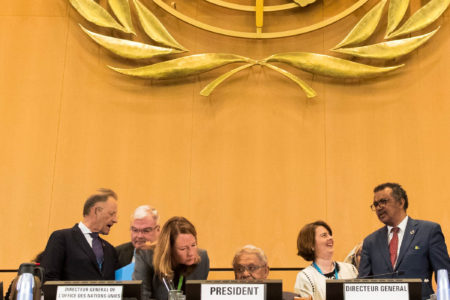
When Alexander Baring of England’s great invest- ment banking house visited Upper Canada ”” today’s Ontario ”” in 1797, he adjudged it as recorded by Philip Ziegler in, The Sixth Great Power: A history of One of the greatest of All Banking families, the House of Barings, 1762-1929:
”œbeyond the reach of any export market and must like Switzerland subsist from its own resources.” Both it and Lower Canada (today’s Quebec) were ”œa perfect deadweight to Great Britain.” The settlers were without any kind of patriotism and as soon as self- interest dictated a change of policy, ”œthe same scene will be played which we witnessed in these States (he wrote from Philadelphia) with the only difference that the Contest will be much shorter.” The only reason for occupying the Canadas had been to secure the northern frontier of what was now the United States, ”œbut since the loss of the latter they are of no service but to the empty vanity of large territorial possessions and to increase Ministerial patronage at the expense of the (British) Nation.”
Alexander Baring, however, was far more bullish on Upper and Lower Canada’s southern neighbour, the United States, as early as 1801. Barings was also far more bullish on Argentina with its superior climate, superior lands and proven natural resources, and its greater accessibility via the shipping lanes by sail.
However, by the middle of the nineteenth century, Barings’ attitudes toward Canada and Argentina had reversed. A Barings business partner observed that ”œ’They appear to be thriving in Canada,’ he told Bates in 1841, ”˜and to be a pru- dent, frugal and good sort of people’” as Ziegler writes in his landmark history of the Barings banking dynasty. (New York: Alfred A. Knopf, 1988). By 1848, the development of Canada was far behind that of the United States, primarily for lack of access to capital and investors. It was to the investment bankers Barings and Glyns in London that the Canadians turned. When the CPR was to be built and the new Dominion of Canada agreed to loan $20 million of the $35 million that the CPR was authorized to raise, George Stephen turned in 1884- 85 to Barings to underwrite an issue of $3 million of stock. But Barings, confidence in Argentina was undermined in spite of its natural attributes as shown in Thomas Baring’s judgment that ”œthis so-called Republic is possibly under a more despotic rule than any other country on the face of the earth.’”
Throughout much of the twentieth century and on into the present century, Canada has continued to be a desirable destination for foreign investment. What was decisive in Barings’ preferring Canada over Argentina, despite Argentina’s natural assets, was Canada’s government and its other cultural attributes.
Investment is not uni-directional. Canadians are investing abroad, around the world. But like the nineteenth- century investment bankers of Barings, Canadians tend to invest in countries whose government and other cultural attributes mirror the historical Canadian commitments to the rule of law, the sanctity of contracts, honesty, thrift, prudence and work ethic.
When investors make investment decisions, they look for countries like Canada. Their decisions to invest are affirmations of their confidence in a country, including its business climate and commercial culture. Decisions against proceeding with investment may well be an expression of misgiv- ings about a country’s government and its commitments to the rule of law and other key principles. When investors clamour to invest in a country, they are often giving that country an ”œA” grade.
A recent report focuses on Canada’s achieving an ”œA” grade on trade, investment, productivity and economic growth. On June 26, the Government of Canada’s Competition Policy Review Panel, composed of L. R. (Red) Wilson (chair), Murray Edwards, Thomas Jenkins, Isabelle Hudon and Brian Levitt, submitted their 140-page report, Compete to Win, to the federal Minister of Industry, Jim Prentice. The report makes 65 recommendations, including these:
-
amendments to the Investment Canada Act, particularly in respect of raising review thresholds (except in respect of ”œculture”), and shifting onus from requiring the investor to demonstrate ”œnet benefit” to calling upon the rele- vant minister to demonstrate an adverse effect to national interest;
-
amendments to sectoral regimes in respect of ownership of banking, air transport, uranium mining, telecommunications and broadcasting, and financial services;
-
amendments to the Competition Act, particularly in respect of M&A;
-
amendments to taxation related to corporate tax rates, provincial capital gains and consumption taxes, reduc- ing personal income taxes in favour of raising value-added consumption taxes, tax provisions that disadvan- tage Canadian companies relative to foreign companies engaged in Cana- dian acquisitions, and interest deductibility for Canadian compa- nies pursuing foreign acquisitions;
-
education policy reforms designed to increase the number of Canadian students pursuing training in engineering and technology, to attract international students to Canadian institutions;
-
immigration and immigrant reset- tlement policy reforms designed to expedite foreign credential recognition and to address Cana- dian labour market shortages;
-
reducing barriers to inter-provin- cial trade, particularly related to goods, services and people, to securities regulation, and to envi- ronmental assessments;
-
proactively expanding Canada’s multilateral trade especially by multiplying bilateral free trade agreements and foreign invest- ment protection agreements, and by way of liberalizing Canadian trade and investment policies and intentionally branching out on trade and investment globally;
-
creation of a Competitiveness Council independent of govern- ment and business, with a man- date to evaluate and report on Canada’s competitiveness ”” a mandate distinct from the ongo- ing mandate of the Competition Bureau to enforce.
In what follows, I intend to highlight certain strengths of the report and its rec- ommendations as well as some of its weaknesses. And I want to test whether the report’s stated philosophical framework stands up even in light of its argu- ments and recommendations.
The panel’s report, Compete to Win (downloadable at: https://www.ic. gc.ca/epic/site/cprp-gepmc.nsf/en/ Home), recognizes a role for govern- ment ”” federal, provincial and munic- ipal. But it points out government can’t do it all.
The recommendations focus on the role of Parliament to make amendments to various statutes described above and for closer ministerial over- sight of delegated legislation ”” regulations. They call for the federal government to ramp up its development of multilateral trade, specifically with the negotiation of bilateral free trade and investment protection agree- ments. They urge federal and provincial governments to make certain policy shifts in respect of immigration, educa- tion, credential recognition, regulations, intellectual property, inter-provincial trade and the development of physical and security infrastructure at Canada-US border crossings. Government must take a lead role in many respects on Canadian trade, investment ”” in Canada and Canadian investment abroad, and on improving and administering a frame- work in which nongovernmental institu- tions, organizations and associations (businesses, unions, educational institu- tions, financial institutions et al.) can pursue their roles. On intellectual proper- ty (IP), for example, only government can create the legal framework and enforce it in such a way that individuals, businesses and universities can ”œmone- tize” the IP they have created and devel- oped, enjoying ROI of intellectual capital. Only the federal government is in a position to make bilateral agree- ments that open foreign markets for trade and protect Canadian investors.
The Wilson panel also recognizes that government should limit its role. The report proposes to raise the dollar thresholds and revise the circum- stances in certain sectors that would trigger ministerial review. Further, the panelists advocate shifting onus from investors to government on foreign takeovers ”” from investors’ showing ”œnet benefit” to government’s demon- strating adverse effects to Canada.
The panel recognizes the impor- tance of ”œnongovernment”: ”œWe call on our business leaders to be ambitious, raise their sights, seek out and capitalize on new opportunities, and relentlessly focus on improving how their business- es operate.” And while they want to limit ministerial review by raising the thresholds, they make an exception in respect of cultural institutions. They appear to be concerned with greater protection for cultural institutions from foreign take over than for others.
The exceptionalism the panel advo- cates in respect of cultural institu- tions highlights a problem with the stated philosophical disposition and thesis of the report:
What will it take to deliver to our grandchildren the same measure of progress we have enjoyed? We believe that it will take a more competitive mindset. We need to view competition as being a nec- essarymeans to an end. We must become more engaged with enhanced competition domestically and with increased efforts to pene- trate global markets.
Further, the report discloses a disposition that government should get out of the way:
We believe that the role of gov- ernment is to provide a frame- work that sets the right conditions for competitiveness. This includes removing legal, regulatory and policy impedi- ments to competition and pro- viding the conditions to better enable Canadian companies to compete in global markets. The challenge for all Canadians is to be ambitious, show initiative, take risks, make investments and pursue the opportunities in the global economy for creating jobs and wealth for Canada.
And this, on competition’s mak- ing citizens’ lives better:
The greater the level of competi- tion in an economy (competitive intensity), the better off its citi- zens will be and the better its successful firms will be able to compete beyond the boundaries of the domestic economy. Opening an economy to the free entry of goods, services, com- petitors and capital increases competitive intensity in the economy and, as a result, its productivity.
Admittedly, this is a report of the Competition Policy Review Panel, and the mandate assigned to the panel is focused on Canadian competitiveness. However, the philosophical framework suggested above does not line up well with the panel’s recommendations.
Take culture. If competitiveness truly were the core aim, if ”œremoving impediments” truly were the core role of government on trade and investment, then it becomes very difficult to explain the panel’s recommendations in respect of foreign investment in Canadian cul- tural institutions. The panel’s recom- mendations here suggest that government should not remove, but maintain impediments. Perhaps less controversially, the panel also advocates stronger protections against piracy of IP.
A stated core thesis and philosophical framework that took account of the role of government as ”œframework builder and defender” instead of merely as an ”œimpediment remover” would have lined up better with the panel’s recom- mendations. Although the panel advo- cated the creation of a new, independent Competitiveness Council, it would have been more satisfying had the panel acknowledged from the outset the importance of many kinds of non-gov- ernmental institutions, organizations and associations. The report focuses on the role of business. It says a little about universities in respect of training for competitiveness and IP. There is almost nothing about the roles of labour unions in labour force adjustment, labour mobil- ity and the rest. Surely among the lessons to be learned from what is happening to most of Canada’s ”” and North America’s ”” auto manufacturers is the influence of labour union contracts on competitive- ness even at home. That said, the pan- elists do see labour unions’ being represented on their proposed Competitiveness Council.
The report says nothing about non- profit institutions (hospitals, clubs and charities), religious institutions or voluntary associations. Yet these are the very institutions, organizations and associations that make Canadian cities fit for human habitation, regard- less of income level, and that con- tribute to Canadian cities’ becoming magnets for head offices.
The panelists advocate Canada’s diversifying its international trade and investment by focusing on the ”œBRIC” growth economies ”” Brazil, Russia, India and China. But is it wise to do so indiscriminately? Russia may be moving increasingly toward what former President Putin describes as ”œRussian democracy,” and what to the rest of the world appears as movements toward a restoration of autocracy or oligarchy. China’s Communist Party vigorously defends its role in the People’s Republic’s one-party government and state. Questions have arisen from time to time as to China’s enforcement of consumer product standards and prop- erty rights, especially in respect of IP. Brazil and India are less problematic. Canada shares with India the experience of the common law, parliamentary insti- tutions, the sanctity of contracts and a large population that speaks English. Perhaps Canada’s focus for internation- al trade and investment abroad should be India over China.
I was surprised that the panel does not address how the provisions of the Investment Canada Act for review of for- eign takeovers of Canadian companies have been sidestepped by foreign direct investors’ making common cause with a Canadian investor. The Ontario Teachers’ Pension Plan leads a consor- tium to take the $52-billion Canadian giant BCE private in partnership with three US private equity firms. The Competition Bureau, the CRTC (in March), Minister of Industry Jim Prentice (in April) and the Supreme Court of Canada (in its June 20 ruling) all approved the takeover.
The Government of Australia announced earlier this year that it will review all proposed foreign investment from sovereign wealth funds (SWFs) in respect of national security. If Australia deems any investment by a SWF may adversely affect national security, the investment is not permitted to proceed. Australia is not alone in its concern. Perhaps in part as a response to concerns in Australia, Europe and elsewhere, the International Monetary Fund (IMF) called a meeting of 25 member states with SWFs on May 1 in Washington, DC. The states ”” including Canada ”” organ- ized the International Working Group of Sovereign Wealth Funds (IWG) co- chaired by the IMF and the Abu Dhabi Investment Authority. The IWG con- vened in Singapore on July 8, in camera, and it is scheduled to report by October ”œa set of SWF principles that properly reflects their investment practices and objectives.” It might have been helpful for the panel to comment ”” if not on the IWG ”” on the influence of SWFs on investment, trade and competitiveness. Saying more about Australia’s review standard for foreign investment focused on ”œnational security” instead of ”œnational interest” as in the report might have been instructive.
Should Canadians ”œcompete to win”? Yes, but this is not decisive for Canada’s continuing to be a magnet for trade, investment, talented people, wealth creation, and its continuing to be a centre for human flourishing in the world. As with the nineteenth-century investment bankers of Barings, what is decisive is Canadians’ cultural adherence to the rule of law and the sanctity of con- tracts, its commercial culture of honesty, productivity, quality of workmanship and hard work, and making a country fit for human habitation. As the panel sug- gests, there is room for improvement on these matters. They are not merely means to the end of competitiveness. Competition is not ”œcore.” Canada’s competitiveness will be a fruit of Canada’s cultural commitments and character.






